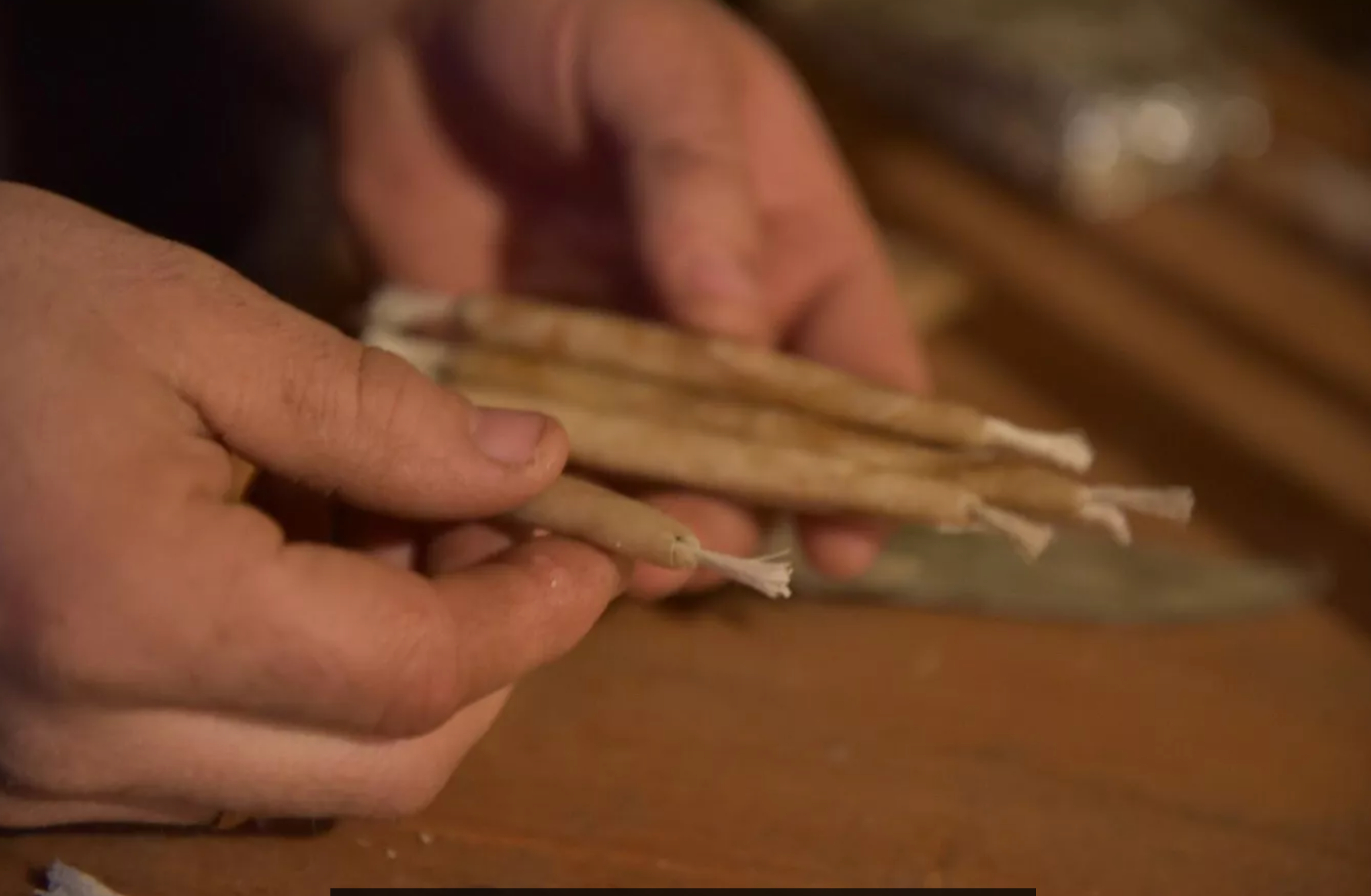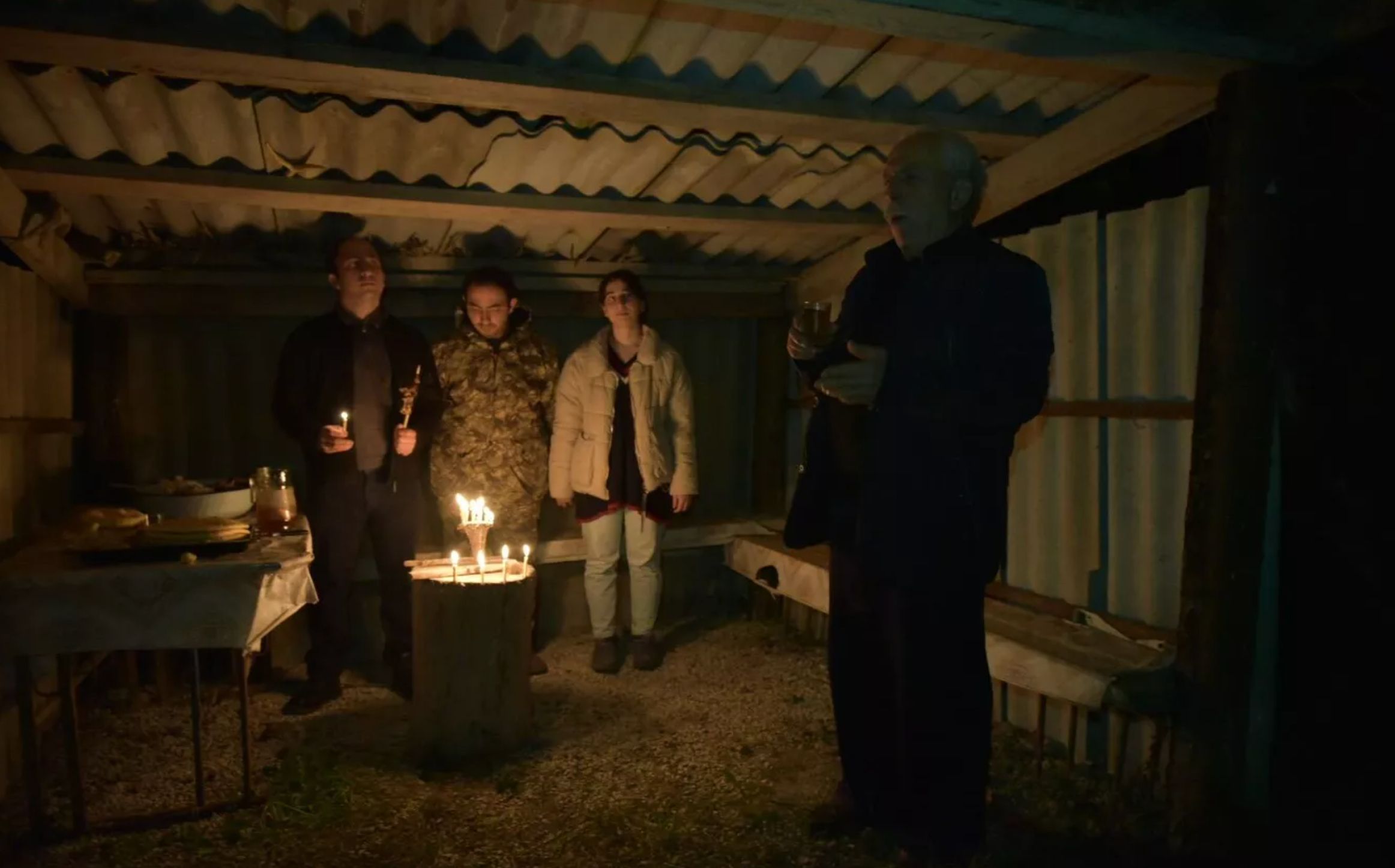Azhyrnyhwa: Abkhazia's Timeless Celebration of Creation and Renewal

On January 13 and 14, many Abkhazians celebrate the religious festival of Azhyrnyhwa.
SUKHUM / AQW'A — On the night of January 13-14, the Abkhazian community engages in a profound and ancient ritual known as Azhyrnyhwa (Ажьырныхуа), marking a pivotal moment of spiritual and cultural significance. This festival, deeply rooted in the ethnic Abkhazian heritage, coincides with the old Julian calendar's New Year, yet stands distinct in its cultural and religious essence.
Azhyrnyhwa, as anthropologist Marina Bartsyts explains, is more than a festive observance; it is a sacred ritual connecting the Abkhazian people to their historical and mythological past. The festival venerates Shashwa, an archaic deity in the Abkhazian pantheon, symbolising the deep-seated traditions of metallurgy and blacksmithery. These crafts are not merely historical professions but are imbued with religious and cultural significance, dating back to the Bronze and Copper Age.

Wax candles are also made for each family member. After sunset, the family heads to the forge.
The ritual of Azhyrnyhwa embodies a unique philosophy. It sees all elements of nature and human endeavor as interconnected within a cosmic whole. This perception aligns with the festival's purpose: transitioning from chaos to harmony, symbolized through the acts of celebration and ritual. The festival represents a pause, a sacred moment distinct from the mundane flow of daily life, where every action and word holds profound significance.
Interestingly, the word "anyhwa" in Abkhaz, meaning 'festival,' also connotes 'prayer,' highlighting the intermingling of joy and spirituality. This festival reflects the entirety of Abkhazian culture, from religious beliefs to daily life, reviving ancient mythological beliefs and practices.
+ The Sacred Time of the Azhyrnyhwa Ritual, by Marina Bartsyts
+ Azhyrnyhwa - the most important holiday of the Abkhazians: Interview with Inal Khashig
+ The Religious Beliefs of the Abkhasians, by N.S. Janashia & N.Y. Marr

The heart and liver of the sacrificial animal are threaded onto walnut sticks.
Despite historical upheavals like long wars, exile [of the 19th century], colonisation, and the Soviet era's secular policies, Azhyrnyhwa has persevered, testament to the resilience of Abkhazian traditionalism and cultural conservatism. Today, it marks the beginning of the winter-cycle of traditional familio-clan rituals in Abkhazia.
The date of the New Year and the form of its celebration have evolved over time. Originally, the Abkhazian New Year's cycle might have aligned with the end of winter and the onset of spring, a time for ensuring agricultural fertility and prosperity. However, Azhyrnyhwa, dedicated to the deity Shashwy, is now closely associated with the winter solstice.
The festival's unique aspect is its alignment with lunar rather than solar cycles. The rituals, including sacrifices and prayers, are performed in the evening and must conclude before moon-set. This practice underscores the festival's connection to the moon, a vital aspect in the Abkhazian ritualistic tradition.

Family members or groups of related families participate in a special rite dedicated to the God of the forge, with the exception of daughters-in-law. Then, each family member, in order of seniority, must recite a prayer for the prosperity of the family and all humanity, take a sip of wine, and partake in their portion of the sacrificial meat.
Since 1994, January 14th has been officially recognised in Abkhazia as the day of Azhyrnyhwa, a public holiday celebrating the Renewal (Creation) of the World. This acknowledgment not only honours an ancient tradition but also reinforces the cultural identity and heritage of the Abkhazian people.
In conclusion, Azhyrnyhwa is not just a festival; it is a profound expression of Abkhazia's cultural and spiritual identity, a reminder of the enduring bond between its people and their ancient traditions. As the world around them changes, the Abkhazians continue to find solace and meaning in the timeless ritual of Azhyrnyhwa, a testament to their deep connection with history and the natural world.